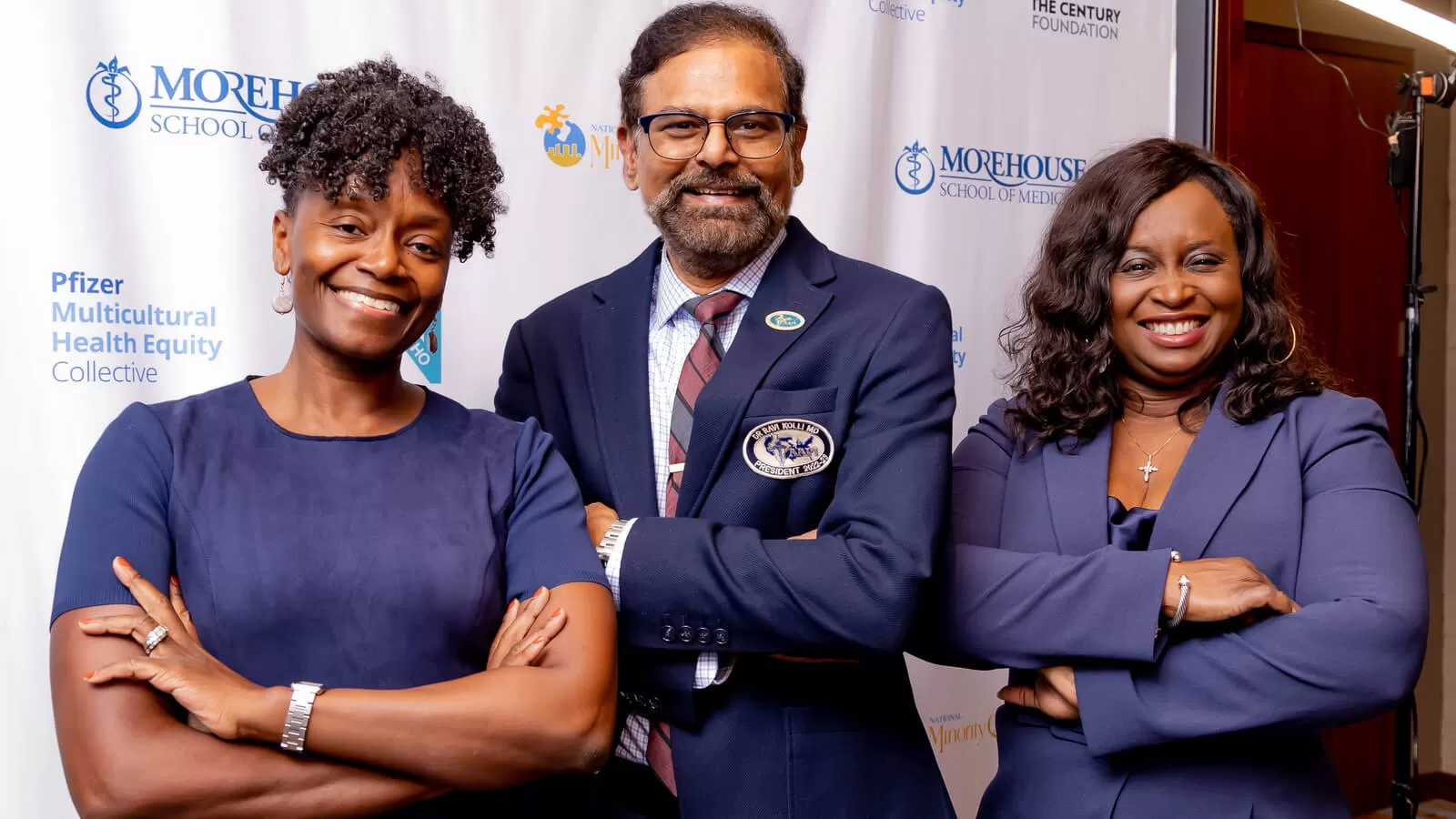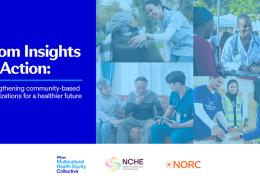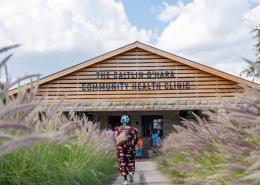Bringing Together Diverse Organizations to Strive for Health Equity

As a Black woman who grew up living in subsidized housing in the U.S., I know what it means to live in a world where healthcare is not equal, and not trusted. Like so many others, I have family and friends along the health spectrum who have little interest in going to the doctor because they don’t feel seen or heard. This well-earned lack of trust has led some to decide against receiving the COVID-19 vaccine, among other healthcare services and interventions.
I know firsthand the work that Pfizer scientists are doing to develop new treatments, to give hope to patients where there once was none. And yet, if people who need those medicines cannot or choose not to access them, then we have to do more.
This belief is what drives my work as co-leader of Pfizer’s Multicultural Health Equity Collective.
Meet The Collective
This cooperative of Pfizer colleagues and more than 40 nonprofit partners across the U.S. is working toward health equity by closing gaps in healthcare and health policy that impact historically disregarded communities.
Through The Collective, we get on-the-ground insights into what patients need by working with some of the people closest to them: community groups, healthcare provider associations, legislative caucuses, and patient advocacy organizations. Since The Collective’s launch in 2014, we’ve joined our partners in more than 600 community health engagement and outreach events and programs reaching more than 1.5 million people in the United States—all in an effort to create a world without health disparities.
In 2022, we convened a Health Equity in Action Summit in Atlanta with nearly 100 health equity leaders from across the healthcare sector such as health policy, academia, and healthcare delivery. Our purpose was to discuss programs and policies aimed at helping to disrupt systemic racism in healthcare and to build a community to further scale up those solutions.
From those sessions, participating partners, including The Century Foundation, Morehouse School of Medicine, National Association of County and City Health Officials, and a working group of 30-plus community partners that emerged from the summit developed “An Action Guide to Disrupt Inequitable Health Outcomes."
The issue of health disparities is not new, yet progress has been slow. By offering practical directions in four key areas (healthcare facilities and delivery, policy, research and data, and workforce pathways), we hope to light a spark under the entire healthcare ecosystem to take action so that patients everywhere can benefit.
A starting point for systemic health equity change
When the patient is at the heart of healthcare, and healthcare is made accessible, regardless of race, ethnicity, gender identity, sexual orientation, age, socioeconomic status, or geographic location, and delivered in a culturally competent way, that’s equitable care. In co-creating this guide, one opinion I believe we all share is that in order to eliminate the health equity gap, we must work together to ensure that solutions include the patient’s voice, especially those experiencing disparate health outcomes, from the start.
In the guide, we offer solutions that community-based organizations, policy makers, health system decisionmakers, and academics can apply to their own institutions. Our goal in doing this is to challenge conventional thinking and outline tangible steps that organizations can take to get us closer to health equity. To continue the momentum, on July 28, 2023, we launched an RFP (request for proposal), with support from Pfizer’s Institute of Translational Equitable Medicine (ITEM), led by Dr. Aida Habtezion, to help fund some of these solutions as organizations put the plans into action.
In the years since The Collective was founded, we’ve seen how partnership can make a real difference. For example, when COVID-19 disproportionately impacted historically disregarded communities, our partners at The Collective were able to help develop clinical trial materials designed for Black, Latinx, and indigenous communities. With their guidance, we were able to describe the clinical trial in a culturally appropriate and meaningful way and better engage medically underserved communities and diverse participants.
Taking steps towards an equitable future
Despite my optimism, I don’t expect health equity will be accomplished in my lifetime. Systemic racism is embedded in policies in ways that are not always obvious. So, to think that we can quickly dismantle them is the definition of hubris or maybe even insanity. But if we can start to move the dial in specific areas—like reducing Black maternal mortality, or enhancing diversity and cultural sensitivity in our healthcare workforce—those would be signs of meaningful change.
I want future generations to experience a world where people of all ages, colors, and backgrounds have access to and receive quality care. I want them, and their loved ones, to be able to trust their healthcare providers and believe in medicine and science. I want them to feel empowered as experts in their own health experiences and conditions and to feel that their healthcare providers will listen to them as such. And I want them to live in a world where partnerships like The Collective are integrated into plans and policies from day 1, so that separate structures are not needed. In that world, every patient would already receive excellent medical treatment regardless of who they are or where they're from.
While I may not see that world myself, I also know that that world won't exist without the steps we take today.
At its heart, The Collective serves as both a convener of partners and an incubator for change, as we all learn how to make better health possible for the communities we serve. As a partner, Pfizer is listening, taking action, and sharing our findings with the hope that they may inspire an even broader impact around the world, leading toward an equitable future, where everyone has the ability to access better healthcare.
![]()





